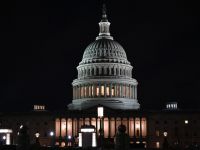Economists, industrialists and farmers warned Sunday of grave economic consequences to Lebanon, if the country applies sanctions against neighboring Syria. They stressed that Lebanon, which is already reeling under a severe economic slowdown, had much to lose if the government were to comply with Western and Arab pressure to apply biting sanctions on Syria.
All of those who were interviewed by The Daily Star suggested that Lebanon had no interest in complying with the Arab League decision to enforce economic sanctions on Syria.
The Arab League, which suspended Syria’s membership, had announced Saturday its intention to enact economic sanctions against Syria for crackdown ruthlessly on Syrian opposition. This came months after both the European Union and the United States upgraded sanctions against Syria. But it is still unclear what sanctions the Arab League is planning to enforce or how they will be implemented.
Lebanon, which shares a 220 kilometer border with Syria, is the only land outlet for the country apart from Israel, which Lebanon is currently at war with. For this reason, Lebanon ships the majority of its industrial and agricultural exports through Syria while the latter looks at Lebanon as an important trading partner.
Elie Yashouie, an economist at Notre Dame University, expected Arab League sanctions, mirroring U.S. and EU sanctions, would harm the Lebanese economy significantly. He argued that Lebanese banks would suffer the most from sanctions mostly because of their impact on Syria’s economy.
“The chief impact would be on Lebanese banks operating in Syria. These banks have over $6 billion in deposits. Sanctions and [the] resulting economic downturn would mean these banks will bear significant losses on their Syrian operations,” he said. Yashouie highlighted that Syrian operations constituted a significant 10 percent of the consolidated balance sheets of Lebanese banks.
Moreover, banks in Lebanon, he suggested, have made over $ 1 billion of loans to Syrian businesses and individuals. This leaves them vulnerable to increased default risks. Yashouie added that the industrial sector would also suffer greatly from potential sanctions:
“Lebanon would then have to find an alternative route for exporting to the Gulf region, Iraq, and Turkey. This would increase significantly transport costs severely harming their overall competitiveness,” Yashouie warned. This was echoed by Ghazi Wazni, an independent economist, who believed that sanctions would severely hurt the $560 million in bilateral trade between Syria and Lebanon. “But the sanctions’ primary damage would fall on the industrial and agricultural sector, possibly leaving them unable to export,” Wazni warned.
Wazni also said that additional instability triggered by the sanctions would also be dangerous to Lebanon: “What is even more devastating than sanctions is [the] increased volatility they might induce. Given Lebanon’s 80 percent dependency on the services sector, we are easily affected by any additional instability.”
Wazni also argued that areas bordering Syria in both Bekaa and north Lebanon would be the most affected by any sanctions on Syria, since the local economy in both regions was highly integrated with the Syrian economy. Jacques Sarraf, a leading industrialist, agreed with Wazni and Yashouie that sanctions would hurt the Lebanese economy significantly. “Many Lebanese businesses have operations in Syria. For that reason we fear any sanctions,” he said suggesting the sanctions would worsen the overall business climate in Lebanon.
Antoine Howaiek, head of the farmers’ association, also said that if trade sanctions were enforced, this would potentially deal a blow to the agricultural sector which depends on exports to the Arab world through Syria. but he believed Lebanon was unlikely to implement sanctions on Syria.
Lebanon imports from Syria reach about $511,765 million, while exports stand at $332,883, according to Lebanese customs officials. But these numbers do not reflect the entire economic relationship between the two countries as they do not reflect investments, tourism, remittances and other aspects of the complex economic relationship.
The Lebanese-Syrian Economic Pact of 1953 represented the first move toward economic integration, bolstering economic movement between the two countries and introducing duty-free trade in agriculture.
In 1993, an economic pact, more detailed than the previous pact, was adopted that encouraged further coordination of national policies in water, energy and taxation.








